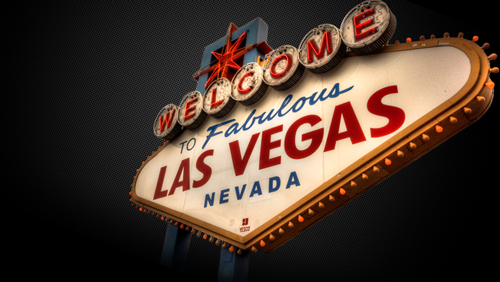In the complex world of regulating online gaming in the US, many questions and issues remain outstanding in regards to where various legality lines will be drawn. Further complicating things are the independent interests of 52 US gaming jurisdictions, 500+ Native American tribes, two political parties, and millions of Americans that were affected by the events of Black Friday. The topic of licensing and regulating Marketing Affiliates is one that was started by Nevada, and has since become a widely discussed issue as other states like New Jersey are now following suit. The question remains though, why should Affiliates be licensed?
Rationale Behind Marketing Affiliate Licensing
 When I first encountered Nevada’s requirements for Affiliates to be licensed, I was both intrigued and confused. They don’t handle wagers. They don’t process payments. They don’t hold player deposits. All they do is market casinos, and as I understood it, not any different from TV commercials or roadside billboards. They might have flashier banners and more aggressive campaigns, but why would Nevada only require Affiliates to be licensed and not every entity that promotes online casinos? As I have since found out, the answer is quite simple.
When I first encountered Nevada’s requirements for Affiliates to be licensed, I was both intrigued and confused. They don’t handle wagers. They don’t process payments. They don’t hold player deposits. All they do is market casinos, and as I understood it, not any different from TV commercials or roadside billboards. They might have flashier banners and more aggressive campaigns, but why would Nevada only require Affiliates to be licensed and not every entity that promotes online casinos? As I have since found out, the answer is quite simple.
Beyond the handling of wagers, beyond the segregation of player funds, beyond the processing of deposits and withdrawals, Affiliates have the ability to slaughter the industry’s legitimacy in the eyes of the consumer, and even hold hostage the businesses of online casino operators. It is because of this, among other reasons, that Nevada (and now New Jersey) has made the wise decision to require Affiliates to be licensed and regulated in similar fashion as other gaming providers.
Affiliates vs. Advertisers
Online casinos have two options of promoting their brands using third-party marketing providers: paid advertising and affiliate marketing. While advertisers and Affiliates convey seemingly similar brand promotions, each of their respective goals, incentives and revenue models are very different. As a result, advertisers and Affiliates aren’t in the same business or even the same category of business.
Advertisers sell a fixed amount of promotional real estate for a pre-determined price, while Affiliates sell individual player referrals on a commissioned (or performance-based) outcome. With paid advertising, casinos bear the full financial risk of campaign success. With affiliate marketing, the Affiliate bears the full financial risk of campaign success. The performance-based Affiliate model better aligns with the operators’ incentives to succeed in acquiring players. However, the inverse alignment in their respective risks versus rewards creates a major vulnerability to the industry that does not occur in the paid advertising model.
If Affiliates are unsuccessful in referring players to the casinos, they don’t get paid. So the financial risk of an Affiliate underperforming is high to the Affiliate, but low to the operator. Conversely, an Affiliate’s reward is higher when pursuing misleading marketing tactics to refer an incrementally higher volume of players, which poses a very high risk to the operator. Therein lies the difference in regulatory requirements between Marketing Affiliates and paid advertiser providers.
Impact of Consumer Perception onthe Online Gaming Industry
The single largest requirement for the online gaming industry to succeed is a positive consumer perception based on the players’ trust in the individual casino operators. Without a regulatory framework in place, the industry’s credibility is merely determined by a high stakes game of Russian roulette – and one where the players (in this case, the casinos) are compromised based on Prisoner’s Dilemma. If every casino plays fairly, everyone benefits. However, if one casino plays unfairly to gain a competitive edge, which they are certainly incentivized financially to do, player trust is breached and the entire industry suffers.
The issue with Affiliates is that they are virtually authorized to ‘speak’ on behalf of online casinos, but without having to follow through on their words. This issue worsens by the nature of their performance-based compensation model. Affiliates, basically, are able to make promises and set expectations that they are not required to deliver upon, and they even benefit by offering larger promises. So essentially, Affiliates are incentivized to act in a manner that could kill positive consumer perception of the industry, without having much liability in doing so.
Operator Oversight of Affiliates
Casino operators are held 100% responsible and accountable for everything they do. It is their responsibility to oversee the legitimacy of their games, prevent cheating, and comply with gaming regulations. This being said, requiring casino operators to solely police the actions of their marketing Affiliates is simply not possible, and nor would it provide enough protection to the sensitive issue of consumer perception in this newly regulated industry.
Even if an operator partnered with just one single affiliate, it still wouldn’t be able to police certain scenarios of wrong doings before irreparable damage to the industry has already taken place. This doesn’t even take into consideration what could occur without the operator ever becoming aware. Perhaps the biggest issue, however, goes back to my Prisoner’s Dilemma analogy where any single operator’s best interests aren’t always aligned with the best interests of the industry as a whole.
Participation in Gaming Revenues
In the eyes of gaming regulators, the model by which Affiliates are compensated is itself enough reason to require licensing. Any entity that shares in actual or theoretical gaming revenues, or is otherwise compensated based on player activity, has long been justifiable by gaming regulators to require licensing. Without this requirement, any unlicensed entity could virtually run a legal gaming operation by receiving 99% of the revenue from a licensed casino partner.
The obvious problem here is that any criminal could reap the financial benefits of a legal casino operation. The less obvious problem is the level of control that a legitimate company (i.e. Google or Facebook) could bestow upon a casino just by the sheer volume and influence of new and existing players.
We all want online gaming to return to US soil, and we all want our money to be held by those who won’t be spending it on airplanes and Bugattis. This industry remains tarnished from a long history spanning from mafia ties and alleged Ponzi schemes.
Despite the annoyance of additional regulatory hurdles, I’m optimistic that the US is headed in the right direction by imposing stricter requirements of doing business, all of which will eventually prove beneficial to us as players and providers.

Jon Friedberg is the Founder and CEO of Pokertrip Enterprises, Inc., a Nevada-Licensed Online Gaming Marketing Affiliate.






